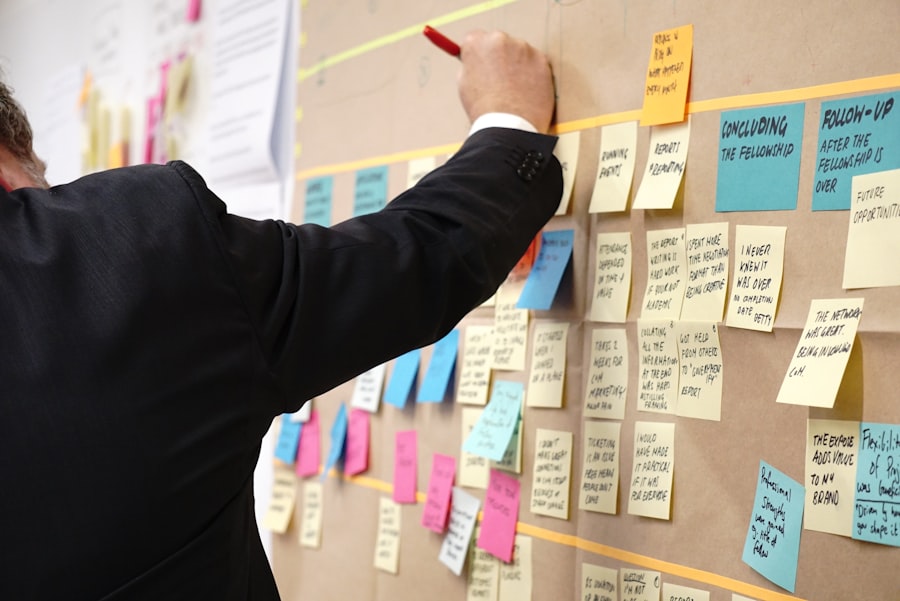Confidence is a fundamental aspect of human psychology that significantly influences our daily lives, interactions, and overall well-being. It serves as the backbone for personal and professional growth, enabling individuals to pursue opportunities, take risks, and face challenges head-on. When one possesses a healthy level of confidence, they are more likely to engage in social situations, express their opinions, and assert themselves in various contexts.
Conversely, a lack of confidence can lead to feelings of inadequacy, self-doubt, and avoidance behaviors that hinder personal development and limit potential. Anxiety, on the other hand, is a natural response to stress that can become debilitating when it escalates beyond manageable levels. It manifests in various forms, including social anxiety, generalized anxiety disorder, and performance anxiety, each presenting unique challenges.
The interplay between confidence and anxiety is complex; low confidence can exacerbate feelings of anxiety, while high anxiety can erode self-assurance. Understanding this relationship is crucial for individuals seeking to improve their mental health and overall quality of life. By addressing anxiety and fostering confidence, individuals can break free from the cycle of fear and self-doubt, paving the way for a more fulfilling existence.
Key Takeaways
- Confidence is important for overcoming anxiety and achieving success in various aspects of life.
- Free courses can be beneficial for building confidence and overcoming anxiety by providing valuable knowledge and skills.
- Different types of free courses are available, including self-help, mindfulness, and personal development courses.
- When choosing a free course, consider your specific needs, learning style, and the credibility of the course provider.
- To make the most of free courses, set clear goals, stay committed, and apply the knowledge and skills learned in real-life situations.
Exploring the Benefits of Free Courses for Building Confidence and Overcoming Anxiety
In recent years, the proliferation of online education has made it easier than ever for individuals to access resources aimed at personal development. Free courses specifically designed to build confidence and address anxiety offer a wealth of benefits. Firstly, they provide an accessible platform for learning without the financial burden often associated with traditional education.
This democratization of knowledge allows individuals from various backgrounds to engage with content that can significantly impact their mental health and self-esteem. Moreover, free courses often incorporate diverse teaching methods, including video lectures, interactive exercises, and community forums. This variety caters to different learning styles and preferences, making it easier for participants to absorb information and apply it in real-life situations.
Additionally, many of these courses foster a sense of community among participants, allowing individuals to share experiences and support one another in their journeys toward greater confidence and reduced anxiety. This communal aspect can be particularly beneficial for those who may feel isolated in their struggles.
Identifying the Different Types of Free Courses Available

The landscape of free courses aimed at building confidence and overcoming anxiety is vast and varied. One popular category includes courses focused on public speaking and communication skills. These courses often provide techniques for effective verbal expression, body language awareness, and audience engagement strategies.
By honing these skills, individuals can enhance their confidence in social settings and professional environments. Another significant category encompasses courses centered around mindfulness and stress management techniques. These programs typically introduce participants to practices such as meditation, deep breathing exercises, and cognitive-behavioral strategies designed to mitigate anxiety symptoms.
By learning how to manage stress effectively, individuals can cultivate a more resilient mindset that supports their confidence-building efforts. Additionally, there are courses that delve into personal development topics such as goal setting, self-reflection, and emotional intelligence. These programs encourage participants to explore their values, strengths, and areas for growth, fostering a deeper understanding of themselves.
This self-awareness is crucial for building confidence as it empowers individuals to set realistic goals and celebrate their achievements along the way.
How to Choose the Right Free Course for Your Needs
Selecting the right free course to address confidence-building and anxiety management requires careful consideration of several factors. First and foremost, individuals should assess their specific needs and goals. Are they looking to improve public speaking skills?
Do they want to learn techniques for managing anxiety in social situations? By identifying their primary objectives, individuals can narrow down their options more effectively. Another critical aspect to consider is the course format and delivery method.
Some individuals may thrive in interactive environments that encourage participation and discussion, while others may prefer self-paced learning that allows them to absorb information at their own speed. Reading reviews or testimonials from previous participants can provide valuable insights into the course’s effectiveness and teaching style. Additionally, it is essential to evaluate the credentials of the course instructors or organizations offering the training.
Courses led by experienced professionals or reputable institutions are more likely to provide high-quality content that resonates with participants. Ensuring that the course aligns with one’s learning preferences and goals will ultimately enhance the likelihood of success in building confidence and overcoming anxiety.
Tips for Making the Most of Free Courses on Building Confidence and Overcoming Anxiety
To maximize the benefits of free courses focused on building confidence and managing anxiety, participants should adopt a proactive approach to their learning experience. One effective strategy is to set specific goals before starting the course. By outlining what they hope to achieve—whether it’s mastering a particular skill or developing coping mechanisms for anxiety—participants can maintain focus throughout the program.
Engaging actively with course materials is another crucial tip. This may involve taking notes during lectures, participating in discussions, or completing exercises with diligence. Active engagement not only enhances retention but also fosters a deeper understanding of the concepts being taught.
Additionally, participants should take advantage of any available resources or supplementary materials provided by the course instructors. Networking with fellow participants can also enrich the learning experience. Building connections with others who share similar goals can create a supportive environment where individuals feel comfortable sharing their challenges and successes.
This sense of community can be particularly beneficial for those dealing with anxiety, as it provides an opportunity to practice social skills in a safe space.
Real-life Success Stories from Individuals Who Have Benefited from Free Courses

The transformative power of free courses aimed at building confidence and overcoming anxiety is best illustrated through real-life success stories. For instance, consider the case of Sarah, a young professional who struggled with severe social anxiety that hindered her career advancement. After enrolling in a free online public speaking course, she learned techniques for managing her nerves and effectively communicating her ideas.
Over time, Sarah gained the confidence to present her work in team meetings and even volunteered to lead a project presentation. Her newfound self-assurance not only improved her professional relationships but also positively impacted her personal life. Another inspiring example is that of Mark, who faced challenges related to generalized anxiety disorder.
He discovered a free mindfulness course that introduced him to meditation practices and cognitive-behavioral techniques for managing anxious thoughts. By committing to daily mindfulness exercises, Mark gradually learned how to navigate stressful situations with greater ease. His journey toward emotional resilience allowed him to pursue hobbies he had previously avoided due to fear, such as joining a local hiking group.
Mark’s story exemplifies how free courses can serve as catalysts for profound personal change.
Overcoming Common Challenges When Taking Free Courses
While free courses offer numerous advantages, participants may encounter challenges along the way that could hinder their progress. One common obstacle is maintaining motivation throughout the course duration. Without a structured environment or financial investment, some individuals may struggle to stay committed to completing the program.
To combat this issue, setting regular reminders or creating a study schedule can help establish accountability. Another challenge is the potential for information overload. With an abundance of resources available online, participants may feel overwhelmed by the sheer volume of content they are expected to absorb.
To address this concern, it is advisable to focus on one concept or skill at a time rather than attempting to master everything simultaneously. Breaking down learning objectives into manageable chunks can facilitate better retention and understanding. Additionally, some individuals may experience self-doubt or imposter syndrome while participating in these courses.
It is essential to recognize that everyone’s journey is unique; comparing oneself to others can be detrimental to personal growth. Embracing a growth mindset—understanding that skills develop over time through practice—can help mitigate these feelings and encourage perseverance.
Continuing Your Journey to Confidence and Anxiety Management After Completing Free Courses
Completing a free course focused on building confidence or managing anxiety is just one step in an ongoing journey toward personal growth. To sustain progress after finishing a program, individuals should consider implementing what they have learned into their daily lives actively.
This might involve practicing newly acquired skills in real-world situations or incorporating mindfulness techniques into their routines.
Seeking additional resources can also be beneficial for continued development.
Many organizations offer advanced courses or workshops that build upon foundational knowledge gained from free programs. Engaging with books, podcasts, or online communities dedicated to personal development can further enrich one’s understanding and provide ongoing support.
Finally, establishing a routine that prioritizes mental health is crucial for long-term success in managing anxiety and fostering confidence. Regularly engaging in activities that promote well-being—such as exercise, journaling, or connecting with supportive friends—can create a balanced lifestyle conducive to personal growth. By viewing confidence-building as an ongoing process rather than a finite goal, individuals can cultivate resilience and adaptability in the face of life’s challenges.
FAQs
What are free courses on building confidence and overcoming anxiety?
Free courses on building confidence and overcoming anxiety are educational programs that provide resources, tools, and techniques to help individuals develop self-confidence and manage anxiety effectively. These courses are typically available online and cover a range of topics such as self-esteem, positive thinking, stress management, and relaxation techniques.
Where can I find free courses on building confidence and overcoming anxiety?
Free courses on building confidence and overcoming anxiety can be found on various online platforms, including educational websites, social media platforms, and mental health organizations. Many universities and colleges also offer free online courses on these topics through their open courseware programs.
What topics are typically covered in free courses on building confidence and overcoming anxiety?
Topics covered in free courses on building confidence and overcoming anxiety may include understanding the root causes of anxiety, developing self-awareness, building self-esteem, managing stress, practicing mindfulness, and improving communication skills. These courses may also provide practical exercises and strategies for overcoming specific fears and challenges.
Are free courses on building confidence and overcoming anxiety effective?
The effectiveness of free courses on building confidence and overcoming anxiety can vary depending on the individual’s commitment to the program and the quality of the course content. Many people have found these courses to be helpful in gaining a better understanding of their anxiety and developing practical skills to manage it. However, it’s important to approach these courses as a supplement to professional mental health support when needed.






